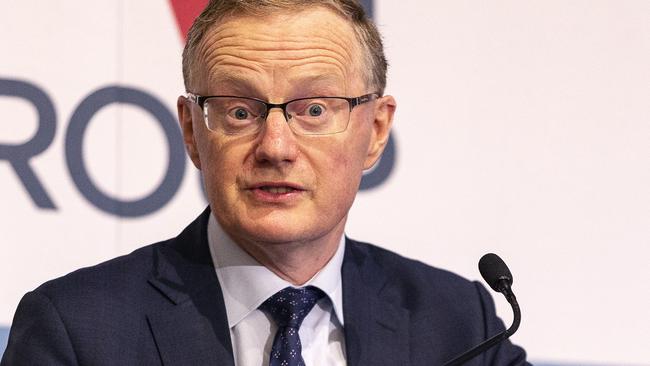Tax breaks saved economy from GFC recession, says RBA
Tax breaks for business during the global financial crisis saved the economy from recession, the Reserve Bank has found.

Tax breaks for business during the global financial crisis saved the economy from recession, the Reserve Bank has found, in a landmark analysis that highlights their potency in generating new business investment.
In the first study of its kind, Reserve Bank economists found emergency tax breaks provided to businesses in 2008 and 2009 to help shield the economy from a looming global recession kept the economy afloat.
“Non-mining investment would have been 29 per cent lower in 2009 if the investment tax break had not been in place,” the study says.
It found the decline in economic growth in late 2008 would have been longer and deeper, wiping out the nation’s resilience to recession in 2009.
“The investment tax break that the Australian government introduced in response to the GFC substantially raised investment,” the RBA says.
In late 2008, Labor treasurer Wayne Swan announced an extra, immediate tax deduction worth 10 per cent of the value of new equipment purchased, increasing it in early 2009 to 50 per cent for businesses with turnovers under $2 million and 30 per cent for the rest.
The authors found investment was highly responsive: for every 10 per cent worth of tax break, investment rose by 33 per cent. “All of our statistical work indicates that businesses responded strongly to the tax break,” the study says.
“We find no evidence that businesses brought forward investment from the future, indicating it led to an actual increase in the total.”
The analysis emerged amid mounting pressure on crossbench senators, especially Pauline Hanson, to pass the federal government’s bill to cut company tax to 25 per cent for all companies by 2026.
The free-market Institute of Public Affairs will today send a note to all MPs and senators, criticising claims that big companies aren’t paying enough company tax as “extremely misleading”.
“Just 2500 companies out of 940,000 paid $248.9 billion in company tax over the period 2011 to 2016,” says IPA research fellow Matthew Lesh in the note.
“A rejection of the tax cuts would be a betrayal of the 3.55 million hardworking Australians employed in large companies.”
Mr Lesh pointed out that large businesses with turnover of more than $50m, which are currently denied the lower company tax rate, employed a third of workers.
“The ultimate beneficiaries of a corporate tax reduction are not ‘companies’ — the throughput entity — but people in the form of workers, customers, and shareholders,” the institute said. While careful not to embroil itself in the debate, the RBA said in its study: “While tax rates and breaks can affect real decisions for Australian companies (this study) provided only limited guidance on the potential effects of policies other than the one we studied.”
David Rogers and Jonathan Hambur, the RBA authors, found the GFC-era tax breaks worked as much for smaller companies, where the existence of dividend imputation means the value of investment deductions and the corporate tax rate itself are largely irrelevant from the perspective of the ultimate shareholders.
Only New Zealand, Chile and Mexico have the same tax system.
Labor’s business tax policy would provide an immediate, permanent deduction worth 20 per cent of the value of new investment worth more than $20,000.




To join the conversation, please log in. Don't have an account? Register
Join the conversation, you are commenting as Logout